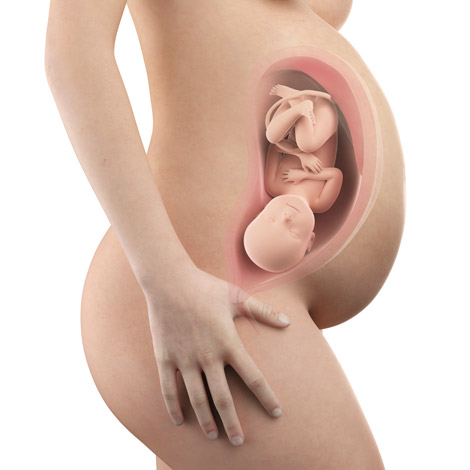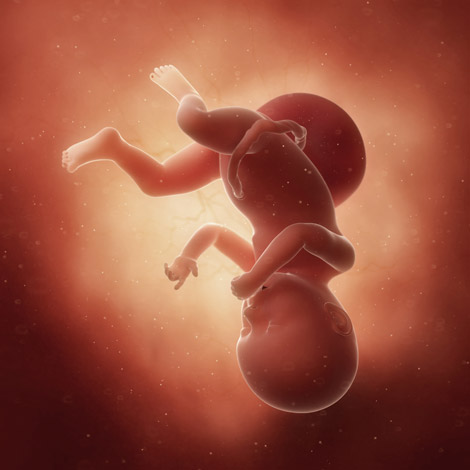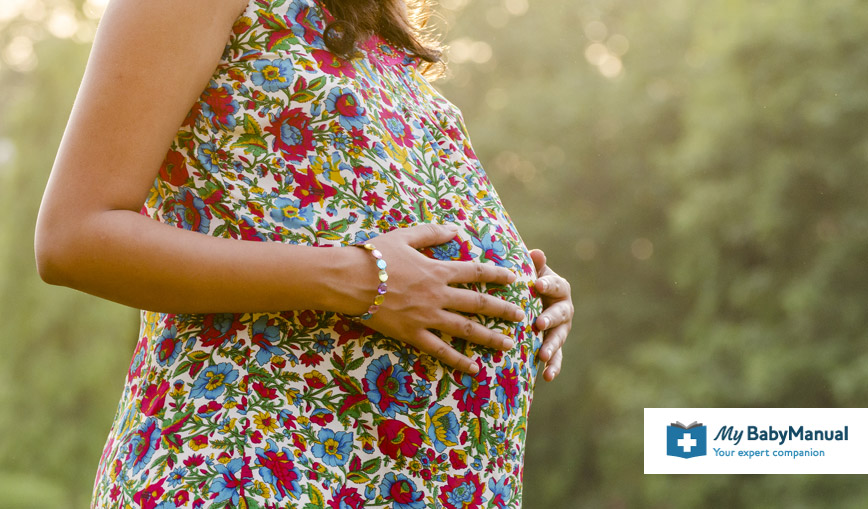Your baby this week
POUNDS IN WEIGHT
He will have about 70 natural skills when he’s born.
Your baby is now a fully-formed newborn.
He may even have a full head of hair.
How big is your baby?
His final, pre-birth, measurements see your baby weighing around 3.5kg (7.6lbs) and he is approximately 51.2cm (20.2in) from crown to heel. Now, he is the size of a small pumpkin. Does that make your eyes water?

How big is your baby?
His final, pre-birth, measurements see your baby weighing around 3.5kg (7.6lbs) and he is approximately 51.2cm (20.2in) from crown to heel. Now, he is the size of a small pumpkin. Does that make your eyes water?

What does your baby look like?
He looks like a combination of his parents. He is a fully-formed newborn now, with finger and toe nails and plump little arms and legs, he may even have a full head of hair. Some studies suggest that a very new baby is designed to resemble his father more than his mother, in order to reinforce his paternity, but soon, very soon, you’ll be the judge of that.
Changes in your body this week
If you’re getting tired because you aren’t sleeping well enough, then nap during the day to keep those energy levels up. Even if you’re just dozing on the sofa with some gentle music on in the background, it will help keep you rested for labour.
How your baby is developing
When he’s born, your baby will have two soft spots on his head, known as fontanelles. This is where his skull hasn’t fused yet; very useful in the cramped confines of the birth canal.
He will have about 70 natural skills when he’s born, like the reflexive grip and instinctive ‘rooting’ that he will perform when in search of your nipple.

How your baby is developing
When he’s born, your baby will have two soft spots on his head, known as fontanelles. This is where his skull hasn’t fused yet; very useful in the cramped confines of the birth canal. He will have about 70 natural skills when he’s born, like the reflexive grip and instinctive ‘rooting’ that he will perform when in search of your nipple.

Health concerns
Now that you’re into your forty-first week of pregnancy, you will be monitored closely and induction may be suggested. Around 23% of expectant mums are induced in Wales, England and Scotland and the reason for this varies. The rate of fetal stillbirth, or distress, does rise sharply after 41 weeks, which is why doctors will be keen to induce you if you go over your due date. Individual circumstances do play a part, such as your weight, general health and whether you have any complications such as high blood pressure or diabetes. If induction is something that you’d prefer to avoid, then have a chat with your midwife about your options.
Are there any symptoms you should be looking out for?
The main thing that you need to monitor at week 40 of pregnancy is the frequency of your baby’s movements. There’s no specific number of times that your baby is expected to kick per day, the crucial thing is to recognise his own pattern of movement and be aware if this changes. There have been several high-profile campaigns about fetal movements, aimed at cutting the stillbirth rate.
Movement indicates that all is well with your baby. If you have concerns, it’s vitally important that you do not use any handheld dopplers, or apps to track the heartbeat because they are falsely reassuring. Your baby needs to have a healthy heartbeat and only trained professionals can interpret results. If you’re concerned about movements, if they’ve slowed down or stopped, then you need to contact your local maternity unit or midwife right away. Don’t ‘wait and see’, or make a routine appointment with your GP, this potentially could be an emergency situation which is why it needs to be investigated right away.
Safety first
Hopefully you’re in full health now and ready to go forward for the challenge of childbirth. But any sudden-onset illness needs to be reported to medical professionals. It could be just a cold or flu, but some symptoms of eclampsia can present the same way as fluey viruses. To be on the safe side, if you have any or all of the following, then you need to speak to your midwife:
- Sudden high temperature
- Any swelling, especially in your face
- Acute pain
- Vomiting
- Bleeding

Important issues this week
You’ve reached 40 weeks, so the chances are that from here on in you will be officially termed ‘overdue’. Some expectant mums have a ‘prolonged pregnancy’ of 42 weeks or more, but the vast majority don’t and you will be closely monitored in these final days by your midwife. Don’t fret if your EDD comes and goes with absolutely no sign of your little one making an appearance, around one in five babies are born at 41 weeks or more.
Keeping fit, staying healthy
You’ve probably given up exercise by now to relax and prepare your body for labour. Staying healthy is very important as you approach the birth, and to stay that way you should keep rested, hydrated (even if your bladder feels like it’s been squeezed out of all proportion) and have plenty of energy-rich snacks around. You can do gentle exercises with your feet, to reduce any swelling, by stretching your toes down and then releasing them back up and repeating 30 times. You can also circle both ankles eight times, repeating these exercises once an hour.
Looking forward; planning ahead
As they approach birth, many women are concerned about whether to wax or shave their pubic hair. Some are concerned with keeping it neat and tidy, whereas others think midwives would prefer there to be minimal hair. But, the latest guidelines from RCOG (Royal College of Obstetricians and Gynaecologists) show that current advice is not to shave or wax before birth, as it increases the risk of infection, especially if you end up with a c-section. If shaving becomes necessary during your labour, then your midwife will do this for you. You may feel a bit self-conscious, but don’t worry – your midwife will have done this lots of times before.



